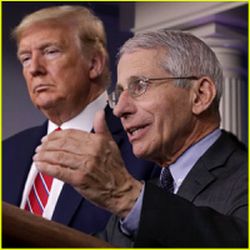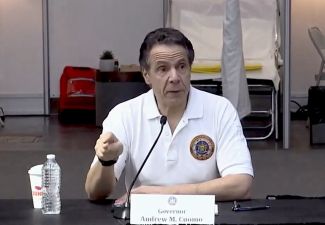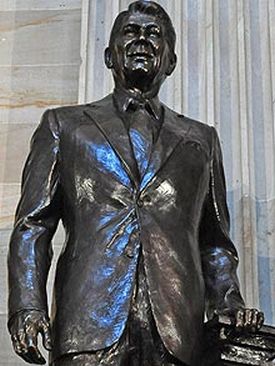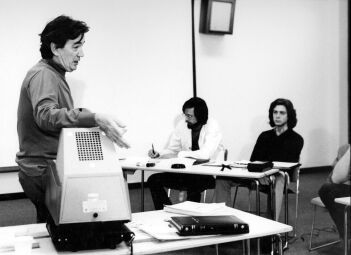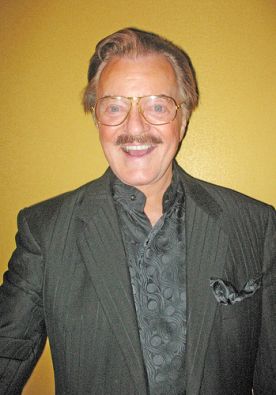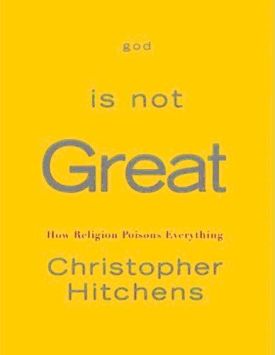Experts in spate
From The New CriterionThe coronavirus, together with the measures chosen to deal with it, has been a disaster for pretty much everybody else, but it has been a godsend to the American media and their long-running anti-Trump “narrative” — which decency, if they had any, might have led them to suspend for the duration of the emergency. Some hope! At last here was an unambiguously bad thing which was happening on Donald Trump’s watch and which ingenuity could and did find a thousand ways to blame on him. Unfortunately for the leaders of this campaign, The New York Times, The Washington Post, CNN and MSNBC, they had wasted so much of whatever credibility was left to them by 2016 in blaming the President for bad things that either never happened (Russian “collusion”) or weren’t quite unequivocally bad (that Ukraine phone call) that, although they no doubt continued to delight the Trump-hating rump who still pay attention to their fake news, they seem to have found it difficult to make much headway against the skepticism of the rest of the public. At the end of March, Mr Trump’s poll numbers were up, not down. In one poll, 60 per cent approved of his handling of the virus response.
I like to think that, at least in part, this was owing to disgust with the media on the part of that section of the public — surely more than 60 per cent? — whose principal concerns about the Chinese virus, unlike theirs, went well beyond its effect on the President’s re-election prospects. Still, day after day, week after week, this latest example of what the media saw as the Trump administration’s failure and mismanagement — including the President’s calling it “the Chinese virus” (racist, obviously) — continued to lead both news and opinion as if it, and not illness, death and economic devastation, were the nation’s number one interest in this unprecedented crisis. Moreover, the subtext of all such stories was the media’s perennial claim to moral authority on the implicit grounds that they know better than those on whom they have trained their critical artillery.
“America was unprepared for a major crisis. Again.” So wrote Dan Balz in The Washington Post as “the first in a series” — how the heart sinks at the words! — “exploring the political dynamics surrounding the coronavirus crisis.” The argument in such a case is merely tautological. Of course America was unprepared for a major crisis. If we had been prepared it wouldn’t have been a major crisis. But major crises will happen to even the best prepared, and it is singularly unhelpful (unless the only thing you want to help is your anti-Trump narrative) to greet them by pretending, as articles like this one implicitly do, that they wouldn’t have happened if the critics had been in charge. That such critics always know better than those who are actually in charge might make you wonder why we don’t just put them in charge and have done with it?
In the case of Joe Scarborough of MSNBC who claimed, retrospectively of course, that “Everybody saw this [sc. the virus] coming in early January” the answer is clear. It’s because they quite obviously don’t know better. Even Joe Scarborough’s audience, even Joe himself, must know that, so far from everybody’s having seen this coming in early January, hardly anybody saw this coming in early January — except, possibly, for the Chinese, though they denied it in early January. As did the World Health Organization at their behest. If anyone else had, in fact, known better at the time, he or she would have said something about it. It would have been just that important. Yet such an obvious lie (if you’ll pardon the expression) as Mr Scarborough’s doesn’t count as a lie among the “fact-checkers” of the world for the same reason that the fact-checkers themselves can never lie: because Truth is their brand. And, as I have noticed in this space before (see “Ripley’s Believe it or Else” in The New Criterion of February, 2020), if Truth is your brand, then it isn’t the truth anymore.
Whether from a pretense of modesty or deliberate dissembling on the part of the media, capital T Truth usually goes under other names these days. One favorite back in the Obama-time was “history” — as in x or y opinion puts me on “the right side of history” while not-x or not-y opinion puts you on the wrong side. “History” might not have been exactly the same thing as “Truth,” but it was equally inarguable, an intentional debate-stopper against which no appeal was possible. In Trump-time, the favored Truth-surrogate, has become “science,” and many if not most of the media’s stories about the President have been couched in terms which pit him against the “scientists” or “experts” who are naturally assumed to know better than he without having to demonstrate it.
“Trump versus the scientists: The president’s tug-of-war with experts over coronavirus policy” headlined The Washington Post in a typical thrust. And: “Trump wants ‘the country opened,’ but easing coronavirus restrictions now would be disastrous, experts say.” You won’t be surprised to learn that The New York Times shared the Post’s opinion of the scandalousness of the President’s saying anything that the experts and scientists disagreed with — especially over his “hope” (as he had put it) for a briefer shutdown than they were recommending. “Trump Considers Reopening Economy, Over Health Experts’ Objections: The president is questioning whether stay-at-home orders have gone too far. But relaxing them could significantly increase the death toll from the coronavirus, health officials warn.”
All this was before both papers and the journalistic herd of their followers really got going with the recriminations by faulting the administration for early delays and unpreparedness in dealing with the virus. A series of so-called investigations by the Post purported to take readers “Inside the coronavirus testing failure” where there was to be found “alarm and dismay among the scientists who sought to help” and it was explained how “the U.S. was beset by denial and dysfunction as the coronavirus raged: From the Oval Office to the CDC, political and institutional failures cascaded through the system and opportunities to mitigate the pandemic were lost.”
Such “investigations” cannot have been unrelated to the ones being contemporaneously promised by Nancy Pelosi and Adam Schiff, along with a new committee to conduct them, in the Democrat-controlled House of Representatives — and who can doubt that they were equally obviously assured of their findings before the investigations began. This is what “science” meant to those who were forever setting it up against Mr Trump or anyone else not disposed to fall into line with whatever they themselves thought about anything. For them science was not a process of the continual testing of hypotheses against facts but a useful intellectual short-cut for converting hypothesis into fact for purposes of argument. Like “Truth” or “History” in the mouth of the media, “Science” was a mere talisman, a putative validation of their claim to know better and therefore tantamount to a certification of certainty — something with which real science has surprisingly little to do.
Not that anyone outside the scientific “community” could be expected to know this anymore. Thus as I write, I see that this morning’s Washington Post is headlining another new scandal, or, rather, its latest attempt to revive a once-promising scandal from two or three weeks previously: “Giuliani, a familiar voice in Trump’s ear, promotes experimental coronavirus treatments” — as if “experimental” were antithetical to “science” instead of its very essence. The story, which occupies nearly 3500 words worth of the Post’s news hole today, clearly has as its sole purpose the discrediting of Rudy Giuliani, a Trump ally, as an uncredentialed scientific amateur and dabbler willing to take unspecified risks — which, being unspecified, must not be very risky, especially in comparison with the risk of dying from the virus itself — by recommending to its sufferers treatment with the anti-malarial drug hydroxychloroquine, a remedy “whose effectiveness has not yet been proved,” according to the Post.
“Science,” in other words, can only be properly “scientific” when its hypotheses are “proved” — which is a natural corollary of the fundamental principle on which the media’s claim to moral authority rests, namely that anything they choose to regard as proven must be ipso facto “scientific,” and therefore certain. As certain as Truth or History or Donald Trump’s awfulness. Long before he came along to upset all their political certainties, the media had had years of practice in turning hypothesis into fact with what used to be called “global warming” and has since come to be known as “climate change.” Nowadays, even to suggest that all predictions of a specific change in any future climate are a hypotheses rather than facts gets one branded a climate-change denier — on the analogy of the long-discredited fringe belief of those known as Holocaust deniers that the Holocaust never happened. The Holocaust, be it noted, is a historical fact. Anthropogenic climate change is not. At least not yet. However well-attested by science, it remains a hypothesis.
In recent years climate-change “denial” has tended to morph, in media jargon, into science-denial — a concept tailor-made to fit our president, who has made it his own brand to question authority, especially that of elites, scientific or otherwise. Remember when many of his now-most severe detractors thought this was a good thing? And, as with global warming, the supposed scientific certainty about the virus has conveyed itself through the magic of the media to matters that are not scientific at all, or not lying within the area of expertise claimed by scientists but political and economic matters on which their opinion is no more authoritative than anyone else’s. Just as every 16-year-old child today thinks she knows what political measures must be adopted, whatever the economic cost, to deal with climate change, so does every Trump-hating reporter know what the famously science-denying President ought to do about the coronavirus — basically whatever he hasn’t done or didn’t want to do. Because “Science.”
On the same day that the Washington Post’s latest “investigation” of the hated Orange Man appeared, the New York Times headlined that “Tensions Persist Between Trump and Medical Advisers Over the Coronavirus” — because, apparently, “the president’s public refusal to wear a mask was the latest way he has cast doubt on their recommendations.” To me, there would be more cause for concern if there weren’t “tensions” between Mr Trump and his medical advisers, as that could only mean that he had abdicated his own responsibility for managing the country’s response to the virus and left it to those whose scientific expertise constitutes no qualification for making such political decisions. There was already but too much reason to think that the man who had never allowed himself to be cowed by the media’s moral and political certainties had finally cracked when confronted with their supposedly scientific ones.
If so, it would be understandable. The media’s belief in political wisdom as a by-product of scientific knowledge, hitherto resisted by the President in the case of climate change, must have seemed too powerful for even him to stand against when lives appeared to be at stake — lives for the loss of which he was sure to bear the media’s blame whatever he did. “Do you think there is blood on the President’s hands?” Chuck Todd of NBC asked Joe Biden. That was a bit “too harsh” even for Mr Biden, who has shown himself to be capable of saying anything to besmirch an opponent, up to and including that Mitt Romney wanted to put black people in chains. It wouldn’t be surprising if it seemed to Mr Trump that the only way for him to blunt such attacks was to put himself in the hands of the media’s approved scientists and do whatever they told him, especially after he was raked over the coals merely for tweeting, “WE CANNOT LET THE CURE BE WORSE THAN THE PROBLEM ITSELF” — something that might on any other lips have seemed so obvious as to be a banality.
The official view, that is — the experts’ view — was not only that the trade-off between public health considerations and economic ones always had to be in favor of the former but that, in their world, there was no such trade-off. That was the view of Kristalina Georgieva and Dr Tedros Adhanom Ghebreyesus, heads of the International Monetary Fund and the World Health Organization respectively, in an op ed in the London Daily Telegraph. “At face value there is a trade-off to make,” they wrote: “either save lives or save livelihoods. This is a false dilemma — getting the virus under control is, if anything, a prerequisite to saving livelihoods.” That such question-begging can pass for expert authority in the media is hardly surprising either. After all, “After all, Ms Georgieva and Mr Tedros are not in danger of losing their jobs jobs in the shut-down — especially since their jobs seem to be the manufacture of precisely such smug certainties as these.
Listen to these experts, these exponents of the allegedly “scientific” consensus of sheer a priori rightness and there are no more hard choices, only a few simple certainties that only a science-denier could, uh, deny. Naturally, there was no mention in the article of the fact, alluded to earlier, that the WHO was more responsible for the emergency than anyone but the Chinese government, since it accepted at face value Chinese assurances as to the virus’s relative harmlessness when it might still have been mostly contained within China. There was a scandal, if you liked. But of course the media didn’t like — because it couldn’t be charged to Mr Trump’s ever-lengthening account.
Elsewhere in the British press it was possible to find articles questioning the scientific consensus that the economy had to be sacrificed to the saving of every possible life and the removal of every possible risk of infection, but apart from occasional pieces on the Wall Street Journal’s editorial pages the matter was not open to question, stateside. True, The New York Times did condescend to report on the idiosyncratic Swedish policy, also widely reported in Britain, of allowing people to decide about keeping schools and shops open and, as it were, riding the virus out without closing down all social, commercial and educational activity. This had also been the first instinct both of the British Prime Minister, Boris Johnson (who came down with the virus himself shortly afterwards), and of President Trump before both were shamed by the experts into more draconian measures.
But the Times minimized the importance of the Swedish experiment (“To Swedes, it’s the rest of the world engaging in a reckless experiment” wrote Fraser Nelson in the Telegraph) by implying that high levels of social trust among Swedes allowed them a certain latitude voluntarily to engage in “social distancing” and other measures that most other countries were in the process of making compulsory. Certainly a country so often praised for its progressivism by those of like mind with The New York Times couldn’t be said simply to be disregarding the “expert” consensus. Here, as elsewhere in the media, “expert” never meant anything more or less than “right,” which is to say left. That Mr Trump was elected in the first place suggests an awful lot of people have figured this out before the media — if the media ever do figure it out.
Discover more from James Bowman
Subscribe to get the latest posts to your email.

